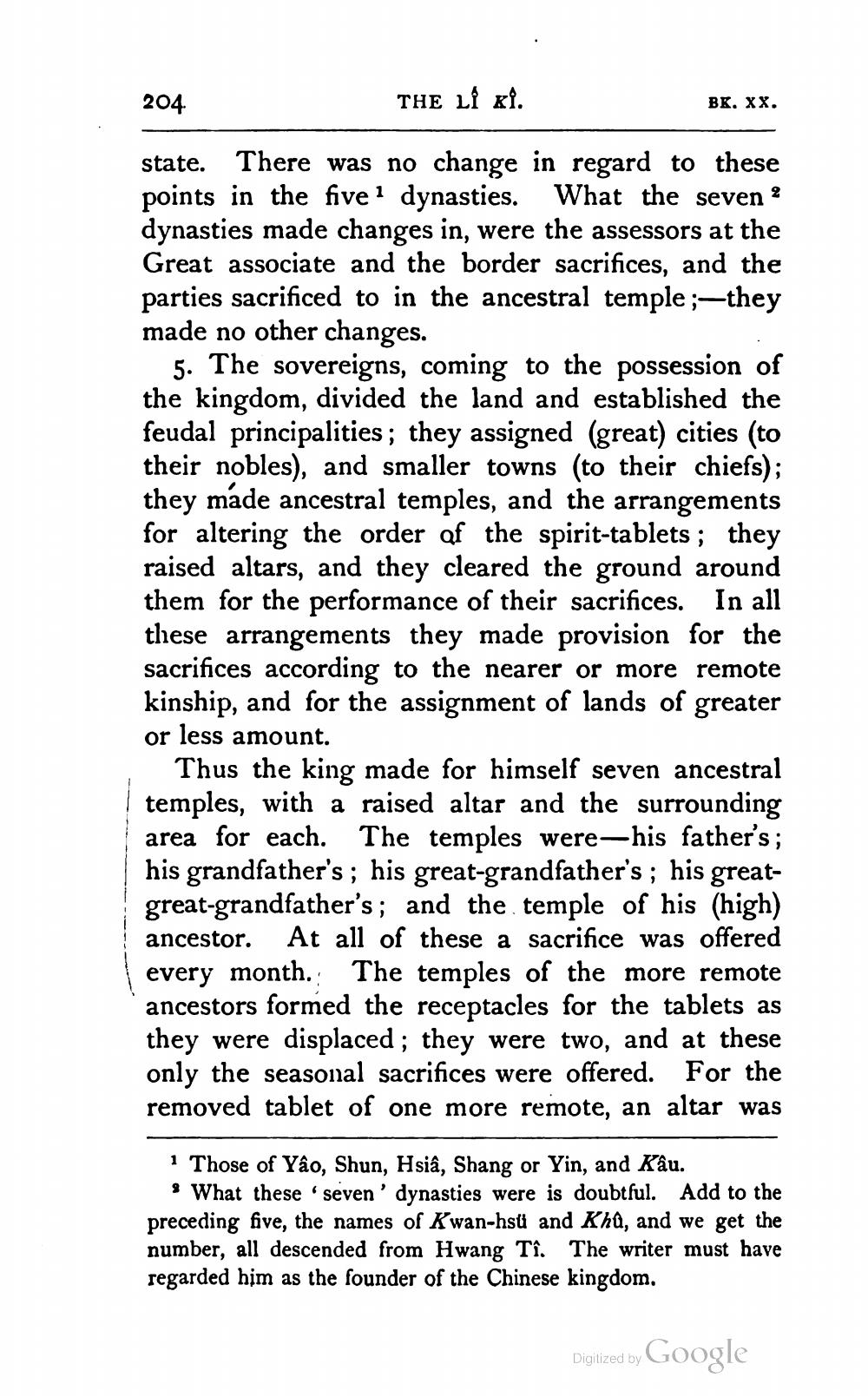________________
204
THE LÎ ki.
BK. XX.
state. There was no change in regard to these points in the five 1 dynasties. What the seven ? dynasties made changes in, were the assessors at the Great associate and the border sacrifices, and the parties sacrificed to in the ancestral temple ;—they made no other changes.
5. The sovereigns, coming to the possession of the kingdom, divided the land and established the feudal principalities; they assigned (great) cities (to their nobles), and smaller towns (to their chiefs); they made ancestral temples, and the arrangements for altering the order of the spirit-tablets; they raised altars, and they cleared the ground around them for the performance of their sacrifices. In all these arrangements they made provision for the sacrifices according to the nearer or more remote kinship, and for the assignment of lands of greater or less amount.
Thus the king made for himself seven ancestral temples, with a raised altar and the surrounding area for each. The temples were-his father's; his grandfather's; his great-grandfather's ; his greatgreat-grandfather's; and the temple of his (high) ancestor. At all of these a sacrifice was offered every month. The temples of the more remote ancestors formed the receptacles for the tablets as they were displaced; they were two, and at these only the seasonal sacrifices were offered. For the removed tablet of one more remote, an altar was
1 Those of Yâo, Shun, Hsiâ, Shang or Yin, and Kâu.
• What these seven 'dynasties were is doubtful. Add to the preceding five, the names of Kwan-hsű and Khů, and we get the number, all descended from Hwang Tỉ. The writer must have regarded him as the founder of the Chinese kingdom.
Digitized by Google




